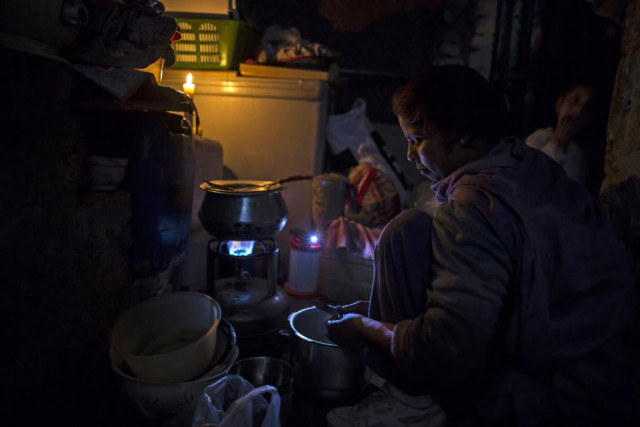Blackouts galore: As glaciers refreeze, power outages abound
Gilgit-Baltistan govt confiscating electric heaters in wake of 15-hour-long outages

A seminar on solar systems and renewable energy was held at the UET. PHOTO: REUTERS
Deputy Commissioner Hamza Salick, in a press briefing on Thursday, explained that power generation in the city had fallen from 35 megawatts to 28 megawatts because the glaciers had frozen and the flow of water in the rivers had reduced.
The shortage of power has severely impacted the routine life of Gilgit’s residents, particularly for heating purpose. They have subsequently been forced to purchase and burn firewood. “Use power for heating and cooking has also aggravated the situation,” Salick told reporters at his office on Thursday.
Hamid Hussain, executive engineer of the power department, also attended the briefing, which was the first since power outages rose to 15 hours a day in the city, where there are more than 25,000 consumers.
In an attempt to control the surge in demand, Salick said special teams have been formed to raid houses and confiscate makeshift heaters and heating rods.
“By doing that, we have been able to save about 1.5 megawatts of power.”
The officials said every household was allowed to use up to 10 amperes of electricity. If any house exceeds this limit, their power would be disconnected.
“In the last week, power lines of 1,661 households have been disconnected,” said the executive engineer, adding that 283 high power heaters have also been confiscated.
According to information minister Iqbal Hassan, the federal government has allocated Rs5 billion under the public sector development programme to overcome the power crisis in Gilgit-Baltistan (G-B).
The funds will be used to generate hydroelectricity, the minister recently told reporters in Gilgit. He also said that the G-B government will spend three-billion rupees to establish a regional grid station in addition to establishing additional sources of energy generation.
Published in The Express Tribune, December 2nd, 2016.



















COMMENTS
Comments are moderated and generally will be posted if they are on-topic and not abusive.
For more information, please see our Comments FAQ